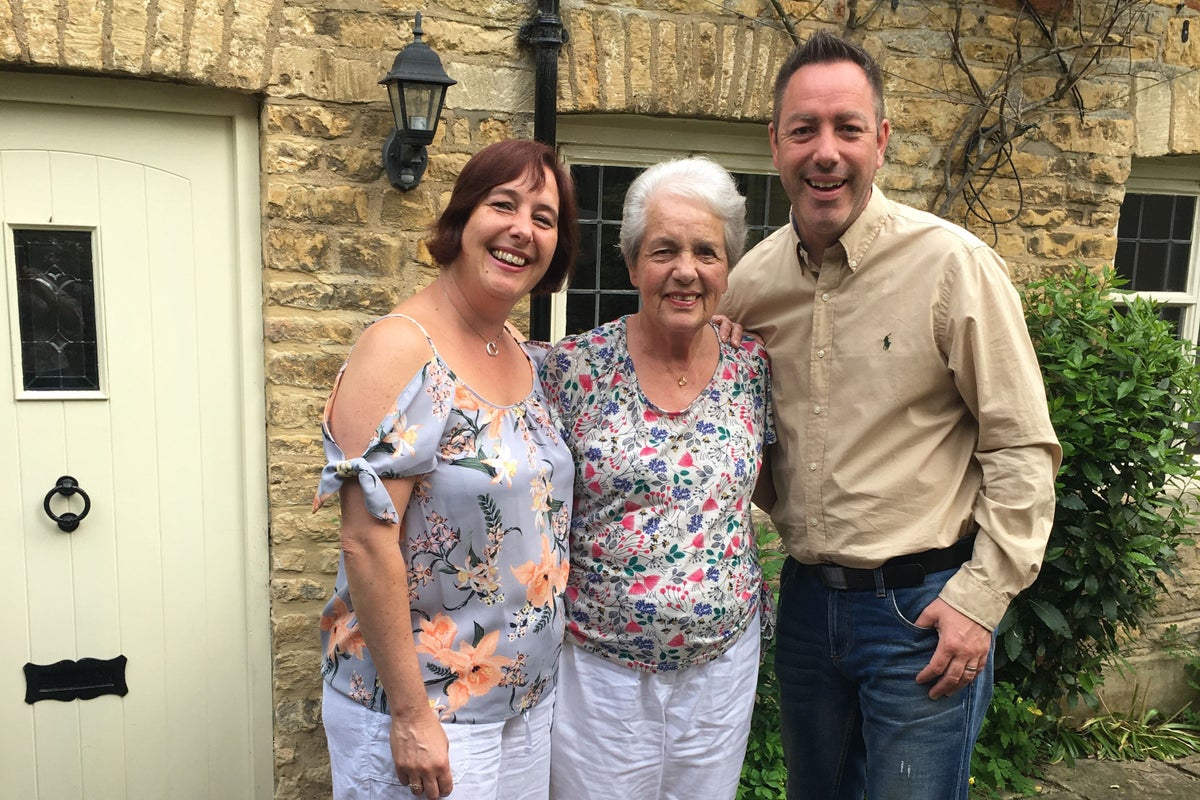For free real time breaking news alerts sent straight to your inbox sign up to our breaking news emails
Sign up to our free breaking news emails
A woman who lost her mother and brother to deadly brain cancer within weeks of each other has welcomed a £1.2m investment in research.
Nurse Nikki Saunders from Essex is campaigning to raise awareness of glioblastoma – an aggressive type of brain tumour which killed former Labour cabinet minister Dame Tessa Jowell in 2018.
Ms Saunders’ mother, Susan, was diagnosed with glioblastoma in September 2018 and, just two days later, her brother Paul Simons found out he had the same condition.
Mr Simons, 42, and his wife Sarah had just returned from holiday when they found out about his mother’s diagnosis.
While visiting her in hospital, Mr Simons felt ill which led his sister to demand that he also have a scan.
Having to tell my mum that Paul also had the same type of brain tumour is something I will never forget
Nikki Saunders
Mr Simons went straight to A&E with a suspected stroke but to the family’s horror, he was also diagnosed with glioblastoma.
The former UPS courier had suffered no symptoms until a few days earlier when he experienced numbness in his right hand followed by stiffness in his right leg and a bad headache.
Ms Saunders said: “As you can imagine, we were devastated.
“Having to tell my mum that Paul also had the same type of brain tumour is something I will never forget.
“Paul was determined that he and mum would beat this. They were both so brave and showed dignity, strength and love to us all throughout.”
Mr Simons died seven weeks after diagnosis in November 2018 while his mother died 11 weeks later, aged 77.
Ms Saunders said: “Words cannot describe what we went through or how missed and loved my brother and mum are.”
Glioblastomas affect more than 3,000 people a year in the UK and typical survival is 12 to 18 months.
“We know that glioblastomas are incredibly difficult to treat due to their complex make-up
Emma Thompson, Brain Tumour Charity
Now, to advance research, the Brain Tumour Charity has awarded grants worth £1.2m, with the first going to Dr Tyler Miller, a research fellow at the Dana-Farber Cancer Institute and Massachusetts General Hospital in Boston, US.
His work will improve understanding of how glioblastoma cells avoid the immune system and continue to grow.
The new project also aims to make glioblastoma cells sensitive to immunotherapy to greatly enhance the chance of survival.
The second grant is going to Dr Spencer Watson, a postdoctoral researcher at the Ludwig Institute for Cancer Research at the University of Lausanne in Switzerland.
He aims to find out whether ‘glial scars’ – the term used for the damage left after glioblastoma treatment – create a protective environment for tumour cells left behind after treatment.
His hypothesis is that glial scars help to re-programme the environment around the tumour which contributes to cancer growing again.
Emma Thompson, head of research at the Brain Tumour Charity said: “Our junior fellows grants fund the future leaders of scientific and clinical research into brain tumours, and our aspiration is that this research will help us accelerate a cure for brain tumours.
“We know that glioblastomas are incredibly difficult to treat due to their complex make-up.
“Therefore, funding this innovative research which aims to understand how the immune system responds to tumour cells and that tackles cells that promote tumour recurrence is important if we want to find new treatments that will enable us to find better ways to treat this disease.
“We are very excited to continue working with Tyler and Spencer and look forward to following the progress of their research over the coming years.”
✕
Subscribe to Independent Premium to bookmark this article
Want to bookmark your favourite articles and stories to read or reference later? Start your Independent Premium subscription today.
SubscribeAlready subscribed? Log in
Popular videos
{{/link}}

